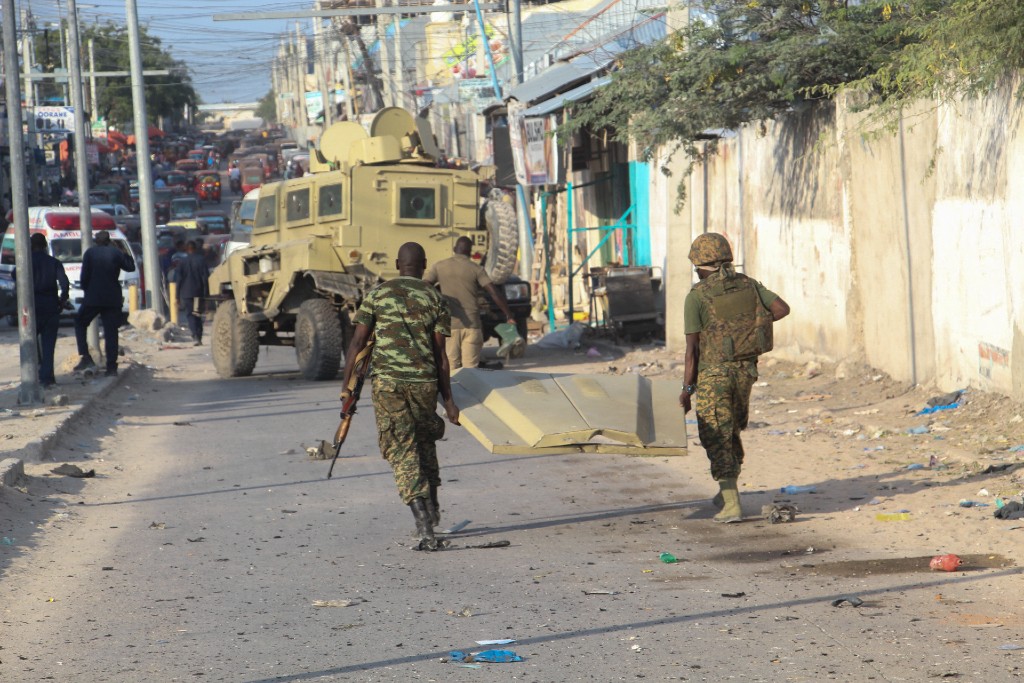Counterterrorism in Disguise? Does A Shift Towards `Peace Enforcement’ Spell a Death Knell for UN Peacekeeping?
newsletter via Feeds on Inoreader 2023-12-16
Summary:

The United Nations Security Council is expected to pass a new resolution this month that would for the first time allow the U.N. to use assessed budget contributions (member dues) to fund African Union peace support operations. After many years of failed attempts, African member States appear to have convinced the United States, a long-standing skeptic of such a resolution, to soften its stance. But the implications of this decision will be far greater than a new funding agreement.
AU peace support missions are primarily “peace enforcement” missions, a model involving the use of force against combatants that usually includes heavy counterterrorism elements, unlike U.N. peacekeeping missions, which are intended to preserve an existing peace or support nascent peace processes. As such, granting core U.N. budget resources to AU missions that at times veer closer to fighting war than to keeping peace, will be a stark departure from current practice. If passed, the resolution could work in tandem with other factors — notably the support for a shift to “peace enforcement” from the U.N. Secretary-General — to spell the beginning of the end of U.N. peacekeeping and further the dramatic rise of counterterrorism within the institution.
Up until now, the U.N. Security Council has understood peacekeeping missions as non-enforcement tools that are designed to create space for a sustainable political solution to crises that would recur otherwise, and that it is not the role of such missions to use military force to restore or “enforce” peace on violent groups or conflict parties. This was a clear conclusion of the High-Level Panel on Peace Operations in 2015 and still rings true today. U.N. Security Council member States that wish to protect the U.N.’s core peacekeeping doctrine, as well as its offerings on peacebuilding, human rights, and the protection of civilians, still have considerable leverage to ensure that a Security Council resolution on financing for AU-led operations does not tilt the U.N. overly towards counterterrorism-oriented peace enforcement.
The AU Push for UN-Assessed Contributions
This resolution comes to the table during an unprecedented year for the United Nations, when the Security Council has been informed by three African host states that the mandated U.N. peacekeeping operations in their countries should depart. The U.N. Multidimensional Integrated Stabilization Mission in Mali (MINUSMA), the U.N. Organization Stabilization Mission in the Democratic Republic of the Congo (MONUSCO), the U.N. Integrated Transition Assistance Mission in Sudan (UNITAMS) have all been terminated by host nations in 2023, the latter just last month. The reported presence and growing influence of Russia’s Wagner Group in each country has raised questions as to its role in decisions to oust U.N. peacekeeping missions.
It remains unclear how these dynamics may have played into the apparent U.S. shift in position in favor of a resolution to fund AU peace support missions. The Biden administration may see the resolution as a means to further curry favor with influential African States in the context of competition with Russia. Another possibility is that the United States may see the resolution as a way to achieve counterterrorism objectives while offloading operations to the AU.
The AU has long held the view that if the U.N. Security Council mandates (or welcomes) AU peace support operations, then U.N. members also should assure the funding for such missions. Sustainable and predictable financing for peace support missions is viewed as a holy grail by the AU, which in the past has had serious concerns about bilateral donors cutting off funding and troop-contributing